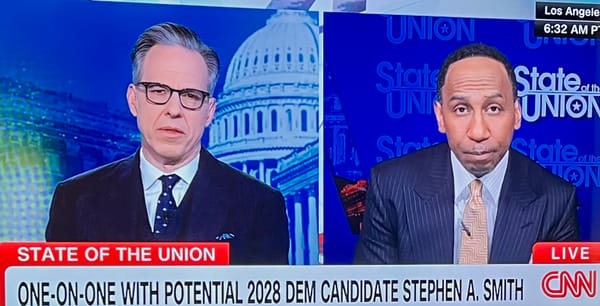What’s up with this “equity” you keep hearing about?
I grew up steeped in the belief of equality. For a number of years I wore a round lapel pin that was all black except for an = symbol in white. It was a simple, powerful message, a product of the Urban League.
In recent months, maybe longer, I noticed the arrival of a new buzzword — equity. Politicians, activists, journalists are using it even more than “systemic racism.” They’re beating it like a war drum.
OK, a distinction without a difference, I thought. Equity, equality; tomato, tomahto, what’s the dif, I thought.
I thought wrong.

Equality means equal treatment for everyone.
When I looked up “equity,” it was defined as fairness, which doesn’t mean equal at all. It is very different.
Example: There is a pizza with eight slices and eight friends sit down to share it. Each gets a slice.
That is equality, and equal treatment.
Now, suppose one of the friends had a huge breakfast, and another hadn’t eaten in two days. The friend who was starving would be given two slices, while the friend who was stuffed would get none. That is equity, or “fair” treatment. Am I right about this?
I’m a words guy, of course, but I am just spitballing here, so I decided to poke around the internet to see if I was on to something.
It didn’t require much of a search.
The scholars at Winston-Salem State University confirmed my guesswork:
“The terms equality and equity are often used interchangeably; however, they differ in important ways. Equality is typically defined as treating everyone the same and giving everyone access to the same opportunities.
“Meanwhile, equity refers to proportional representation (by race, class, gender, etc.) in those same opportunities. To achieve equity, policies and procedures may result in an unequal distribution of resources. For example, need-based financial aid reserves money specifically for low-income students. Although unequal, this is considered equitable because it is necessary to provide access to higher education for low-income students.”
There you go. Equality is race blind; equity is race conscious. (Not just race — also on the list might be income, gender, religion, nationality, shoe size.) Equity is almost a synonym for . . . Discrimination. If that sounds too pejorative, call it “making choices.”
So now the questions are — is equity “fair”? Is equity right?
The term “fair” is highly subjective, even more so than “right.” Is it “fair” in the classroom that certain students get a point added to their grade point average? Is it “fair” in business that certain people be charged smaller taxes? In sports, is it “fair” that games open with some teams having a score on the board?
Sociology was my minor in college — night school — and I remember one instructor, Irv Goldhaber, whose day job was at the city human rights commission. He was no Ivory Tower academic, he had experience in the Real World, always a blessing for students.
He explained certain preferences or accommodations for African-American students this way: If you had two contestants in a race, and one had been confined in a box for 400 years, and the other had been free to exercise, would it be a fair race?
Clearly, it would not be.
That made sense to me, but that was two generations ago, around 1963.
Is the Black runner still in that box?
This could lead to a discussion of reparations, but I won’t let it because that deserves its own column.
This column draws the distinction between equality and equity and what those word choices mean. It alerts you that you will see programs and policies coming down the pike that are unequal, in an attempt to be “fair.”
But are they right?
That depends on how many pizza slices you get.



